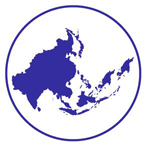Politics of Culture and Transnational Mobility of Hong Kong Intellectual in the Cold War: The Case of Evan Yang (Yi Wen, Yang Yanqi)
Presentation is included in Panel 6: Between Politics and Culture: Asianism and Transnational Link among Hong Kong, Japan, and Korea in the Cold War
Abstract
It had been generally assumed that the intellectual community of Hong Kong was divided into two camps during the Cold War period: pro-Beijing and pro-Taipei. As a Chinese intellectual who had a background of closely associated with the Guomindang (KMT), Evan Yang was not an exception. Different with his peers liked Yi Junzhuo and Qian Mu who left Hong Kong for Taiwan in the mid 1960s, Yang’s career in Hong Kong was comparatively successful particularly after he joined the Shaw Brothers Ltd. He had been one of the most famous writer, journalist and film-director. It will be an interesting question of how Yang managed its cultural and business activities when Hong Kong was confronted with the political rivalry between KMT and CCP (Chinese Communist Party)? And within the paradigm of the rivalry between the two camps, how Yang extended his transnational networks out of Hong Kong?
Drawing upon the materials of Yang himself, which are now housed by the Hong Kong Film Archive including personal diaries, autobiography and correspondences, this paper will try to give a micro-view of Yang’s life in Hong Kong.
Politics of Culture and Transnational Mobility of Hong Kong Intellectual in the Cold War: The Case of Evan Yang (Yi Wen, Yang Yanqi)
RCC Small Ballroom
It had been generally assumed that the intellectual community of Hong Kong was divided into two camps during the Cold War period: pro-Beijing and pro-Taipei. As a Chinese intellectual who had a background of closely associated with the Guomindang (KMT), Evan Yang was not an exception. Different with his peers liked Yi Junzhuo and Qian Mu who left Hong Kong for Taiwan in the mid 1960s, Yang’s career in Hong Kong was comparatively successful particularly after he joined the Shaw Brothers Ltd. He had been one of the most famous writer, journalist and film-director. It will be an interesting question of how Yang managed its cultural and business activities when Hong Kong was confronted with the political rivalry between KMT and CCP (Chinese Communist Party)? And within the paradigm of the rivalry between the two camps, how Yang extended his transnational networks out of Hong Kong?
Drawing upon the materials of Yang himself, which are now housed by the Hong Kong Film Archive including personal diaries, autobiography and correspondences, this paper will try to give a micro-view of Yang’s life in Hong Kong.
